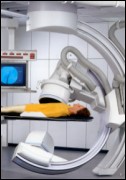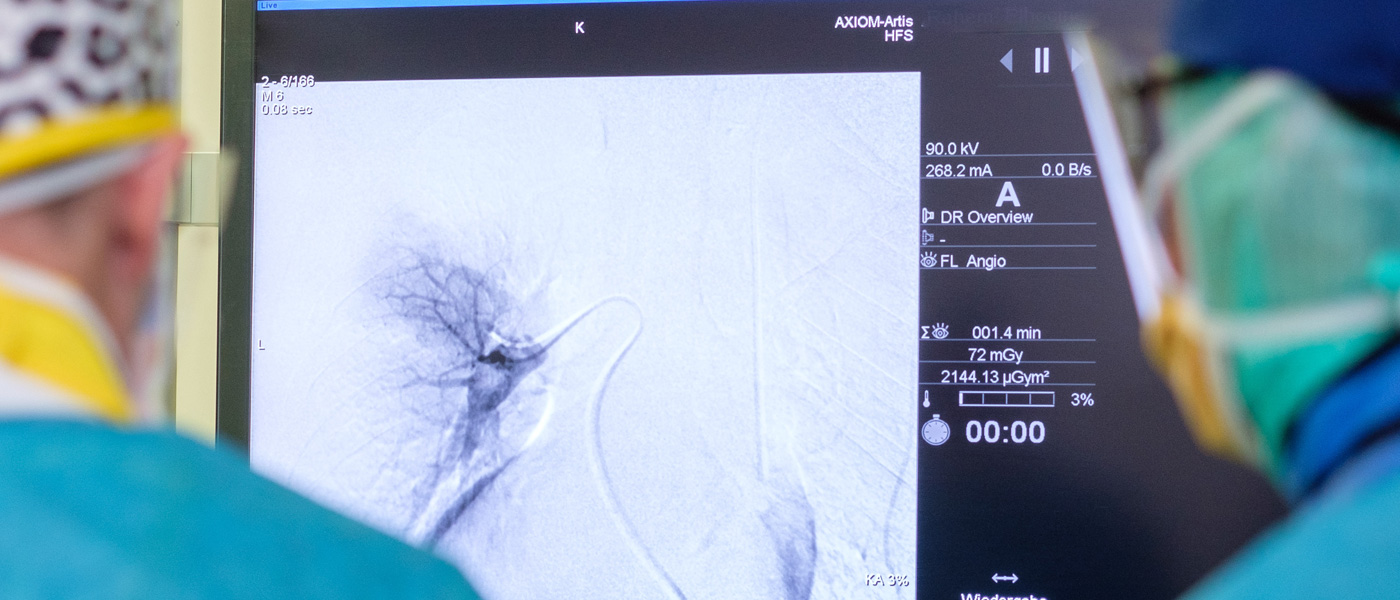After local anesthesia, a puncture is made into the femoral artery in the inguinal region. Doing this, a small femoral sheath is usually placed in the artery through which different catheters or guide-wires can be inserted.
The abdominal aorta with its various branches is visualized. Then a very small catheter (micro catheter) is passed through the liver artery into the artery supplying the tumor and the chemoembolization is performed.
The patients are given pain medications through infusion to prevent pain during the procedure.
The chemoembolization agent are usually composed of:
Mitomycin C or Gemcitabine or both combined (chemotherapeutic) in combination with Lipiodol and Spherex (blocks blood vessels).
The sensitivity of the liver tumor (chemosensitivity) to a particular chemotherapeutic agent can be tested before the procedure through a biopsy from the targeted liver lesion which helps to achieve better results with the mentioned treatment procedure.
At the end of transarterial chemoembolization and after removal of the catheters and femoral sheath, a pressure bandage is applied to prevent any complications in the inguinal region (e.g., haematoma). The patient is then placed for observation for about 6 hours during which possible complications can be diagnosed and treated.
To evaluate the success of the treatment and to rule out a complication, the patient undergoes a check MRI on the same day of chemoembolisation and likewise a CT follow-up on the following day without contrast agent.
Typically the chemoembolisation is done in 2-3 cycles at an internal of 4 weeks between the cycles but some cases may require more cycles depending on treatment success.
The Procedure
Before the treatment a good visualisation and likewise localisation of the tumor is made with the help of our modern digital imaging machines like the MRI or CT so that the embolisat can be injected exactly in the tumour tissue.

Female Contortionist in the widest MRI
Quelle: Dr. med. Nagy Naguib, Größe: 9,1 MB , Dauer: 01:43 min
Hinweis: Zum Betrachten dieses Assets benötigen Sie das Windows MediaPlayer-Plugin, das Sie hier kostenfrei herunterladen können.
